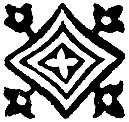
Richard Strauss
HERBERT F. PEYSER

Written for and dedicated to
the
RADIO MEMBERS
of
THE PHILHARMONIC-SYMPHONY SOCIETY
of NEW YORK
Copyright 1952
THE PHILHARMONIC-SYMPHONY SOCIETY
of NEW YORK
113 West 57th Street
New York 19, N. Y.

Richard Strauss at the age of 39
FOREWORD
The writer of a thumb-nail biography of RichardStrauss finds himself confronted with a troublesomeassignment. Strauss lived well beyond the scripturalage allotted the average man. He would have been 86had he reached his next birthday. There was nothingromantic or sensational about his passing, for he diedof a complication of the illnesses of old age. Therewas not much truly spectacular about the course ofhis life, which was most happily free from the materialtroubles which bedeviled the existence of somany great masters; and he was not called upon tostarve or to struggle to achieve the material rewardsof his gifts. He had not to pass through the conflictswhich embittered the lives of Wagner or Berlioz, andhe was never compelled to suffer like Mozart orSchubert. There is no record of his ever humiliatinghimself or performing degrading chores for publishersin return for a wretched pittance. He had wealthenough without compromising his art to keep the potboiling—and for this one can only feel devoutlythankful. What if he was taxed with sensationalism?How many of the masters of music has not had at onetime or another to endure this reproach? If “Salome”and “Elektra”, “Ein Heldenleben” and “Till Eulenspiegel”were in their day scandalously “sensational”did not the whirligig of time reveal them as incontestableproducts of genius, irrespective of inequalitiesand flaws? However Richard Strauss comparesin the last analysis with this or that master he contributedto the language of music idioms, proceduresand technical accomplishments typical of the confusedyears and conflicting ideals out of which theywere born. His works are most decidedly of an age,whether or not they are for all time! In a way he wasalmost as fortunate as Mendelssohn. Need anyone begrudgehim this?
H. F. P.
RICHARD STRAUSS
By
HERBERT F. PEYSER
The late spring of 1864 brought two events which,though seemingly unrelated, actually had a kind ofmystic kinship and were to stir the surfaces ofmusic. Early in May of that year Richard Wagnerwas summoned to Munich to become the friend andprotégé of the young Bavarian sovereign, Ludwig II,whose real mission on earth was to save the composerfor the world. Hardly more than a month later therewas born in the same city a boy likewise namedRichard who was destined in the fullness of time tobecome in a sense an heir and continuator of theolder master, though by no means a vain copy of hisartistic and spiritual lineaments. And long before thespan of his days reached its end he had taken anundisputed place in history as a seminal force inmusic, for all the disagreements and conflicts his artwas to engender through a large part of h